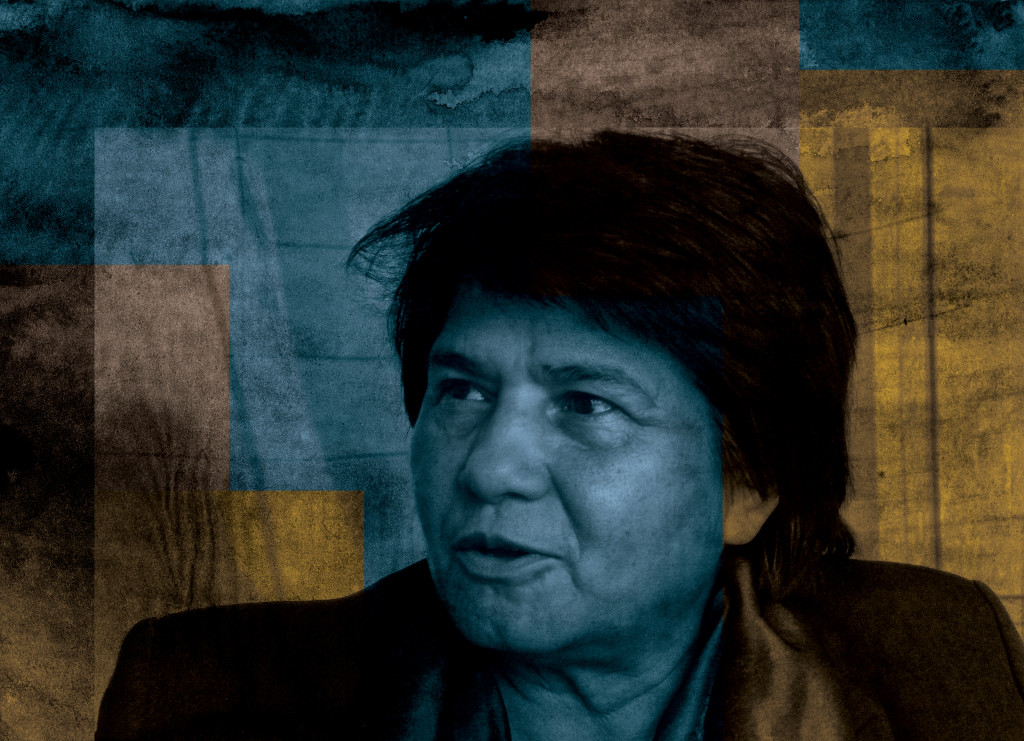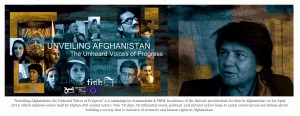Shukria Haidar is a human rights activist. She sought refuge in France following the Soviet invasion of Afghanistan, and founded NEGAR, an association for the defence of women’s rights, after the Taliban seized control in 1996.
Have your rights ever been violated?
I was a professional athlete and member of the Olympic committee during the time of communist rule in Afghanistan (1979-1986). Because I dared to speak out against the government, I was dismissed from the committee and sent to prison. But it was when the Taliban seized Kabul, on 26 September 1996, that I, as a woman, felt that I had lost all of my rights for the first time. I was forced to leave my country.
What do you consider an achievement in Afghanistan?
The inclusion of gender equality in our constitution is a great achievement of our time. There have been specific budget allocations for gender equality and a stipulation that at least 25% (and initially 30%) of all positions in governmental departments and seats in the parliament and provincial councils must be held by women. Reopening the schools, made possible by the help of the international community and the will of the Afghan people, has been another major achievement of the post-Taliban era.
What are your fears?
What I fear most are the groups outside Afghanistan pressuring the Afghan government to share political power with the Taliban. This wouldn’t only be a terrible thing for Afghanistan; it would have drastic effects for the region, and the world. We must prevent this from happening, both for our own sake, and for the sake of future generations.
What are the three major challenges facing Afghanistan?
The first challenge is the upcoming presidential election of 2014. This election has great importance, both for the peaceful transfer of political power and the transition to a more stable state of affairs in Afghanistan. The issue of security is the second challenge for Afghanistan: Afghanistan needs the security agreement with the United States in order to manage future security threats. Unresolved ethnic issues are the third major challenge for Afghanistan.
Is it possible that girls could once again be banned from schools and women excluded from the social sphere?
Nationwide, we have 9 million school students. The people of Afghanistan will not allow the tragedy of girls being excluded from schools to happen again. In some regions, girls are underrepresented in schools because of the lack of roads and means of transportation. However, there are some regions where the central government lacks legitimacy and schools get closed [by the Taliban]. If people are not opposing the closure of schools, it is because they are afraid. People have very bad memories of resisting.
Which factors hinder women’s participation in social, economic, political and cultural arenas?
A number of factors play a role in the inability of women to participate in social and political processes. One obstacle is the way that Islam is interpreted and perceived. Incorrect interpretations lead to dangerous norms and practices being imposed on women in the name of Islam.
Illiteracy and the weak system of education are other obstacles. Most of our people are illiterate; the educated amongst us form a rather small group. And of course, economic factors also have a significant role to play.
What do women in Afghanistan want?
The women in Afghanistan are divided into two groups, the urban and the rural, each having their own specific problems. The urban women, for instance, are more affected by the wars. They demand access to work, and social and political freedom. The rural women of Afghanistan don’t face the same difficulties in trying to leave the house: they work and have a share in the family income. But they too have their own problems. Their demands are primarily access to better healthcare, education and welfare.
Which social forces can women count on?
The constitution of Afghanistan is important for women. There is also a range of women’s organizations, be they economic, legal or social, which offer great support to women. And the Ministry of Women’s Affairs, even with all its shortcomings, deserves to be mentioned.
What do people need for the realization of a more prosperous Afghanistan?
First and foremost, people need security and a well-functioning government. The system of education must be improved: it needs significant and wide-ranging changes. Education is the only way forward. And we need to open up the space for civic participation to include a broader range of people, especially women.
What are your dreams for your daughter?
As a kid, I played a variety of sports. I was a scout, I took part in demonstrations, and on the weekends I picnicked and had fun. I hope that the girls of Afghanistan will have at least the same chance that I did to enjoy their lives.
Can you summarise some of your contributions to change in Afghanistan?
In the past seventeen years, both inside and outside Afghanistan, I have been working on issues relating to women. I have initiated numerous demonstrations in France, in Europe, and in the United States. In 2000, we organised the first conference of Afghan women, including female refugees, held in Dushanbe, the capital of Tajikistan. We launched the Declaration of the Fundamental Rights of Women at the end of this conference, as a way of pressuring the United Nations to find a political solution for Afghanistan. We collected millions of signatures from the US and the EU and also launched the campaign in Afghanistan, but our efforts were blocked by the events of 9/11.
In 2001, we held the second women’s conference, this time in Kabul. Many countries were represented in that conference. The same conference was held in eleven other provinces in Afghanistan to foster understanding of the importance of women’s participation in society. It was during these conferences that we succeeded in convincing the participants of the traditional Jirga, convened to consider the constitution of Afghanistan, that men too stood to benefit from gender equality before the law.
Is there a final message you wish to share with the world?
It’s a great shame that, even though we have many women sufficiently qualified to run for president, women are underrepresented in the upcoming presidential elections. There are, however, a few women who are standing as candidates for Vice President; that, in itself, demonstrates a social change. I hope that, by mobilizing and participating in the upcoming elections, women will be able to better defend their rights and show the world that real progressive forces exist within the Afghan society.
“Unveiling Afghanistan, the Unheard Voices of Progress” is a campaign by Armanshahrand FIDH, which explores views held by Afghan civil society actors. Over 50 days, 50 influential social, political, and cultural actors hope to spark conversation and debate about building a society that is inclusive of women’s and human rights in Afghanistan.
Follow 50 interviews drawn from the “Unveiling Afghanistan campaign” daily on the Huffington Post.
Follow Unveiling Afghanistan on FIDH Twitter: www.twitter.com/fidh_en



